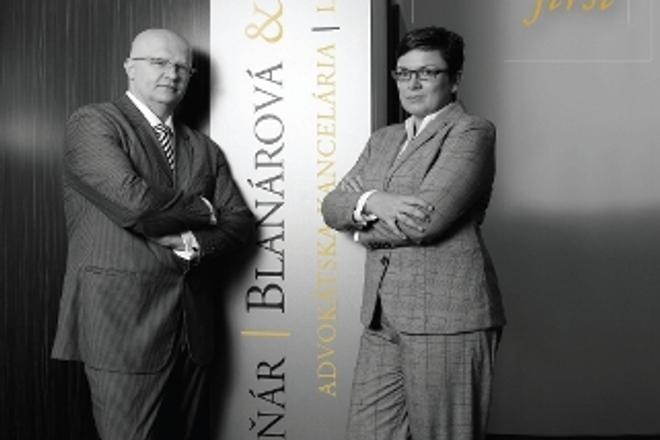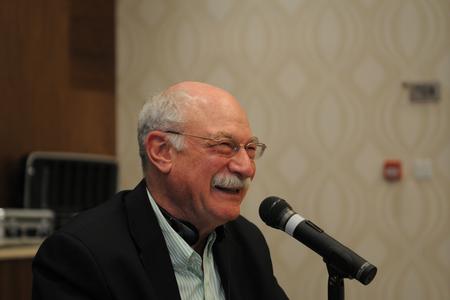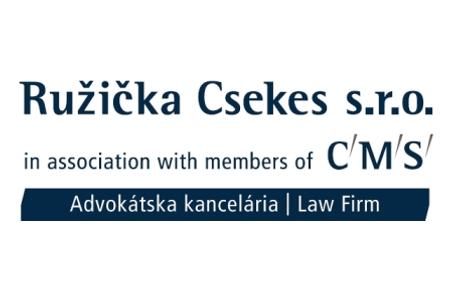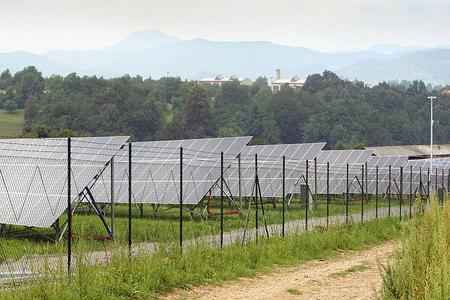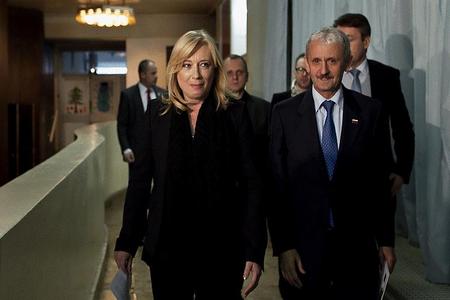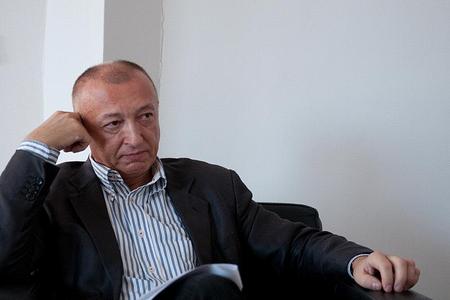Archive of articles - November 2011, page 10
If you desire to read an old article, use the search bar or select the publication date.
Independence of the Energy Regulator in Slovakia
10 years of the Slovak regulatorSlovakia set up a regulatory authority for the energy sector – the Regulatory Office for Network Industries (RONI) – in 2001. As a result the Ministry of Economics is able to draw on RONI’s 10 years' of experience in its preparation of new energy legislation to implement the EU Third Energy Package (Electricity Directive 2009/72/EC and Gas Directive 2009/73/EC).
'Everybody is a walking journalist'
Everybody who wants to be a journalist can become one in the digital age, says Pulitzer-Prize-winning American journalist and academic Joshua Friedman.
Poles Apart in Bratislava
SOME photojournalists, after returning from their assignments covering wars, earthquakes and other disasters, cannot forget the faces and the situations they captured via their lenses and look for ways to help those whom they have photographed. One such photographer is Raymond Rutting, a Dutch photojournalist who established the Art of News Foundation in 2006.
Revolutionary fervour
PUBLIC holidays often allow politicians to wrap their political campaign messages with some softer message, but none has the irresistible charm of November 17, the day when 22 years ago the communist regime was brought to its knees by public demonstrations and peaceful civic resistance. The nearing elections and the fact that every day until March is now, effectively, a day for electioneering, promises more political grandstanding and more speeches on the anniversary of the Velvet Revolution.
Non-compete obligation after employment termination
1 September 2011 was the date on which a new amendment to Act 311/2001 Coll. Labour Code, as amended, came into effect, introducing several significant changes. One of the changes establishes a new institute known as a “non-compete obligation”. Before the amendment came into force it was possible to limit the exercise of any competitive activity by employees only during their employment. Under the Labour Code, it was not possible to conclude other agreements restricting employees’ competitive activities after their employment had ended; therefore, agreements or contracts intended to have similar effects were often concluded under other regulations, triggering discussions regarding the validity and enforcement of such agreements.
Adapting in tough times
THE TOUGH economic situation has brought various challenges to the so-called alternative telecom operators. But these firms are taking inventive steps to make the most of the current market situation. The Slovak Spectator spoke with Peter Máčaj, CEO of Slovanet, Stanislav Verešvársky, CEO of Swan, Igor Kolla, CEO of Antik Telecom, Róbert Štajgár, sales director of Energotel, and the acting director of Železničné Telekomunikácie, Rastislav Cenký, about the methods their companies are employing to remain competitive in challenging economic times.
Investment highlights
November 2010 - The government introduced the National Reform Strategy 2010 to decrease the administrative burden on companies, support their competitiveness, and ease the establishment of new companies.
State ditches net censorship plan
GAMBLERS need no longer fear that their internet service provider will block access to their favourite gaming sites after the Finance Ministry withdrew a proposal to restrict the usage of foreign websites offering gambling, the Sme daily reported.
One in four Slovaks is digitally illiterate
THE LEVEL of digital literacy in Slovakia has not changed over the past two years. Though the Slovak digital literacy rate is higher than the European average the situation is far from ideal as one quarter of the country’s population cannot operate a PC or a mobile phone and it is a lack of will, rather than a lack of money, that is the cause. That is the conclusion drawn by the Institute for Public Affairs (IVO) think tank based on the results from its fourth annual Digital Literacy in Slovakia project. “There is a digital abyss,” said Marián Velšic, the author of the study, in announcing the results in mid September, as quoted by the SITA newswire. “On one side there are people willing and able to take lessons, while others refuse to learn or do not even wish to be taught.” Velšic stated that the project found no change in the situation over the past two years and that people who wanted or needed to work with modern technologies had learned to do so but are now standing still because they think they know everything they need to know, adding that only new technologies would force these people to progress in the future.
Quote of the week
“I wouldn’t do anything like that, whatever they promised.”
Preteky do vrchu
FOR MOST of the last seven and a half years, Slovakia didn’t know it had a president. There were the occasional up-hill races (preteky do vrchu), some fujara performances and regular visits to football and hockey games. And yes, a few laws were returned to parliament and the nation received the president’s traditional New Year addresses.
2011: The year of political and economic challenges
For the first time in many years, Slovakia was the focus of world attention in 2011. In October, as a result of internal political wrangling, it became the last country in the eurozone to vote on changes to the European Financial Stability Facility (EFSF) scheme which European leaders had agreed in July in an effort to calm increasingly jittery global markets. Slovakia failed in its initial attempt, on October 11, to approve the changes, making it the only eurozone country to reject them, and threatening to stymie the whole scheme. As it happened, a second vote two days later passed easily, but by then the Slovak government had paid the ultimate price: the centre-right administration led by Iveta Radičová was out and early elections had been scheduled for March 10, 2012.
Migrants wanted – but will they help?
Foreigner-friendly is certainly not the first description to come to mind when thinking of Slovakia. But despite that, and despite the increasing unemployment rate, the country will soon need an inflow of migrant workers from abroad to patch up the holes in its labour market and sate the hunger of businesses for a larger qualified workforce.
Investors show more interest in 2011
COMPARED to the same period last year the number of foreign investments in Slovakia brokered through the Slovak Investment and Trade Development Agency (SARIO) increased during the first six months of 2011, according to information published by the Economy Ministry.
The old days of cattle breeding
THIS VERY old and rare postcard dates back to the turn of the 19th and 20th centuries and bears clear signs of the Hapsburg monarchy. Its inscription is in Hungarian and German but the name of the place it depicts is Slovak.
Investment aid in Slovakia
Slovakia, like other countries in our region, is interested in increasing the influx of foreign investment. An open, pro-export economy with a small domestic market hopes that such investment will bring increased employment, exports, revenues for public budgets, and expertise. In order to increase the influx of foreign investment, the governments of individual countries strive more or less successfully to remove the various obstacles that make it more difficult for foreign investors to enter the market. Most of these governments also offer attractive packages of state support with the aim of stimulating investment in their country.
Spišiak could face investigation
POLICE President Jaroslav Spišiak could face an investigation into the so-called mafia lists revealed in 2005, after the Interior Ministry inspectorate announced that it was checking criminal complaints filed by one person who appeared on the lists, TV Markíza reported.
Čentéš files complaint with court
JOZEF Čentéš, who was selected by parliament to be Slovakia’s general prosecutor in June, is no longer waiting passively until the subject of his official appointment moves to the top of the to-do list of President Ivan Gašparovič, who said in mid October after the fall of the government that the issue was of tertiary importance for him at that time.
Established investors: the best sales force
Established investors are the best salespeople to pitch Slovakia’s investment environment and they need more systematic attention, says Robert Šimončič, the director of SARIO, Slovakia’s investment development agency.
O2 launches 3G data network
THE MOST recent entrant to Slovakia’s mobile telephone market, Telefónica Slovakia, officially launched data services on its own 3G network in mid July. Its 3G network covered 30 percent of the Slovak population at that time and was expected to rise to 33 percent by the end of August, the SITA newswire reported.
- The law changed. Our family papers were ready. Now my kids are Slovak citizens
- Maria Theresa on the banks of Bratislava
- Slovakia loses another EV model to Spain as Stellantis chooses Zaragoza over Trnava
- The Kremlin’s security agency has a Russian contractor in Slovakia - no one has noticed
- From eight to thousands of runners. How Košice marathon rose to prominence Photo
- Slovak female triathlete shatters barriers with historic win at Himalayan event
- No more photos or bank statements? Slovakia moves to ease residence process
- Iconic Slovak barn still draws crowds. Without donors, it might have been lost Photo
- The law changed. Our family papers were ready. Now my kids are Slovak citizens
- Maria Theresa on the banks of Bratislava
- The Kremlin’s security agency has a Russian contractor in Slovakia - no one has noticed
- Slovak female triathlete shatters barriers with historic win at Himalayan event
- Slovakia loses another EV model to Spain as Stellantis chooses Zaragoza over Trnava
- From eight to thousands of runners. How Košice marathon rose to prominence Photo
- No more photos or bank statements? Slovakia moves to ease residence process
- Iconic Slovak barn still draws crowds. Without donors, it might have been lost Photo
- The law changed. Our family papers were ready. Now my kids are Slovak citizens
- Maria Theresa on the banks of Bratislava
- No more photos or bank statements? Slovakia moves to ease residence process
- Weekend: Celebration of fun comes to Malacky Photo
- Top 10 events in Bratislava for foreigners
- 3 free things to do in Bratislava in the next seven days
- The Kremlin’s security agency has a Russian contractor in Slovakia - no one has noticed
- Digital Jarvis is real now. He is coming for your to-do list
- The law changed. Our family papers were ready. Now my kids are Slovak citizens
- Maria Theresa on the banks of Bratislava
- No more photos or bank statements? Slovakia moves to ease residence process
- A mayor resigns over €2.7 million fraud scandal at town hall
- The Kremlin’s security agency has a Russian contractor in Slovakia - no one has noticed
- Fico praises China and Vietnam as models, says liberal democracy has failed
- News digest: Violent gang in Bratislava is under arrest
- He designed Gatwick. But this is his masterpiece
- The law changed. Our family papers were ready. Now my kids are Slovak citizens
- News digest: Prosecutor seeks jail for NBS Governor Kažimír as his political support wanes
- Slovakia loses another EV model to Spain as Stellantis chooses Zaragoza over Trnava
- Slovak female triathlete shatters barriers with historic win at Himalayan event
- Weekend: Celebration of fun comes to Malacky Photo
- News digest: Fico’s bloc wants to save money by restricting electoral access
- Slovakia plans to restrict access to new medicines amid funding shortfall
- No more photos or bank statements? Slovakia moves to ease residence process More articles ›

